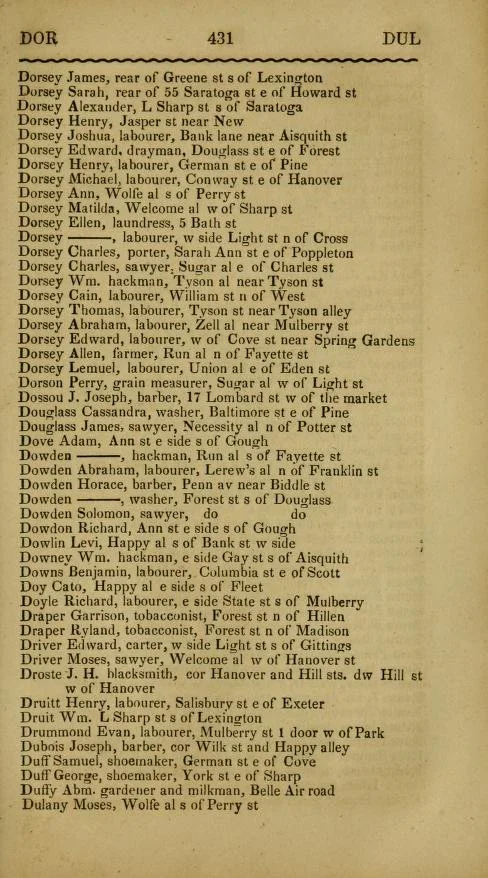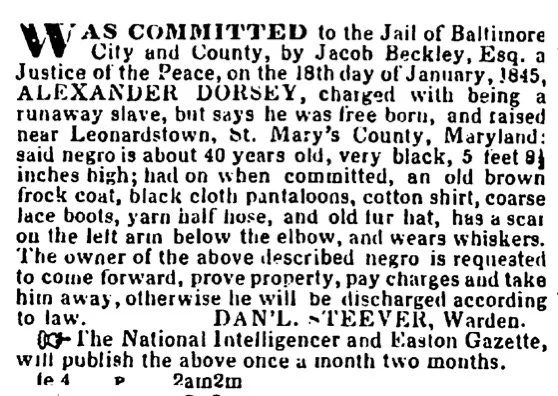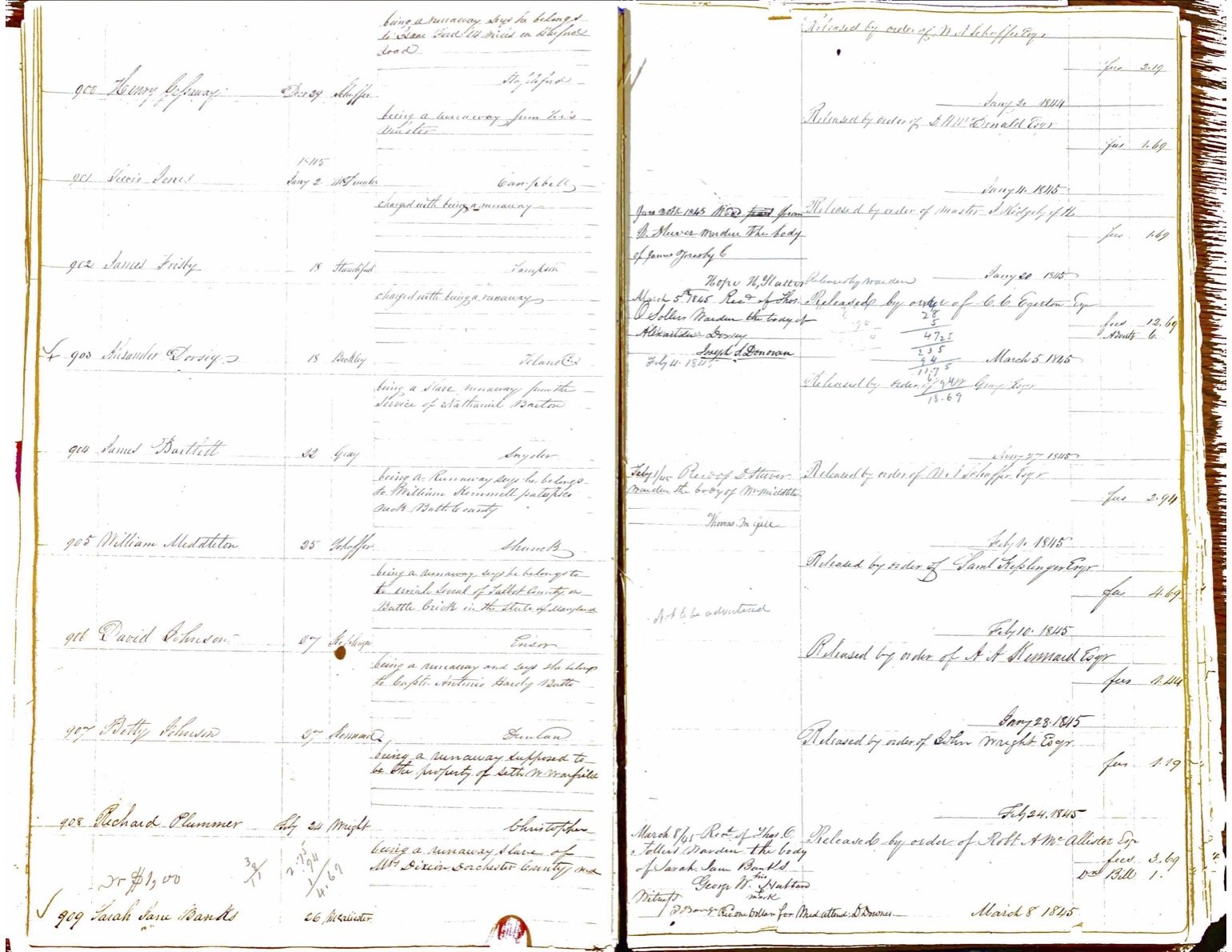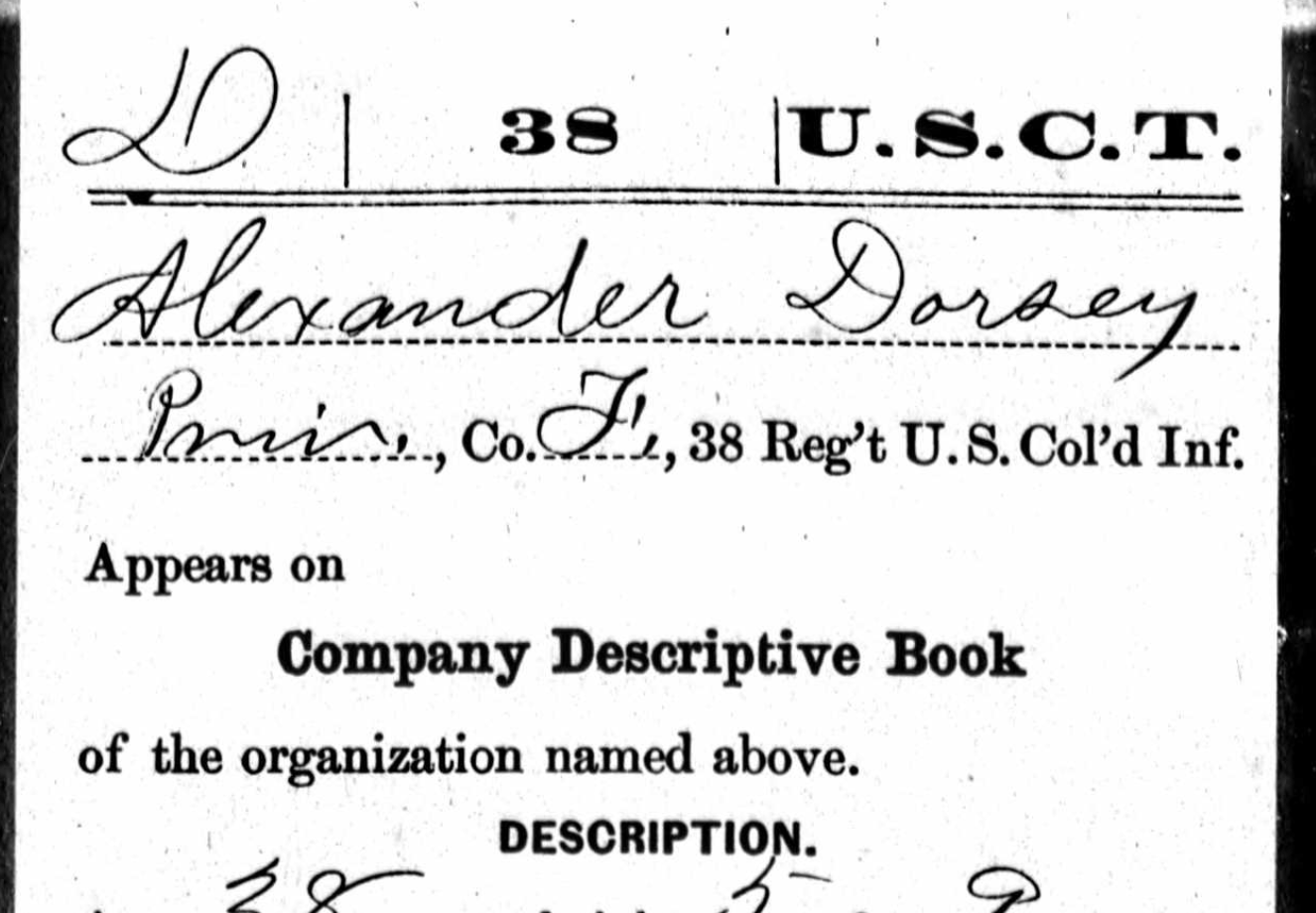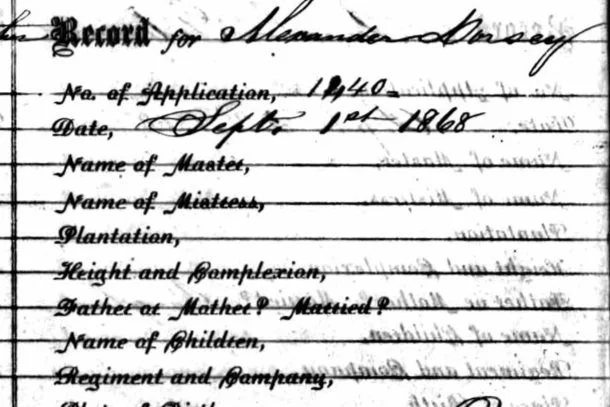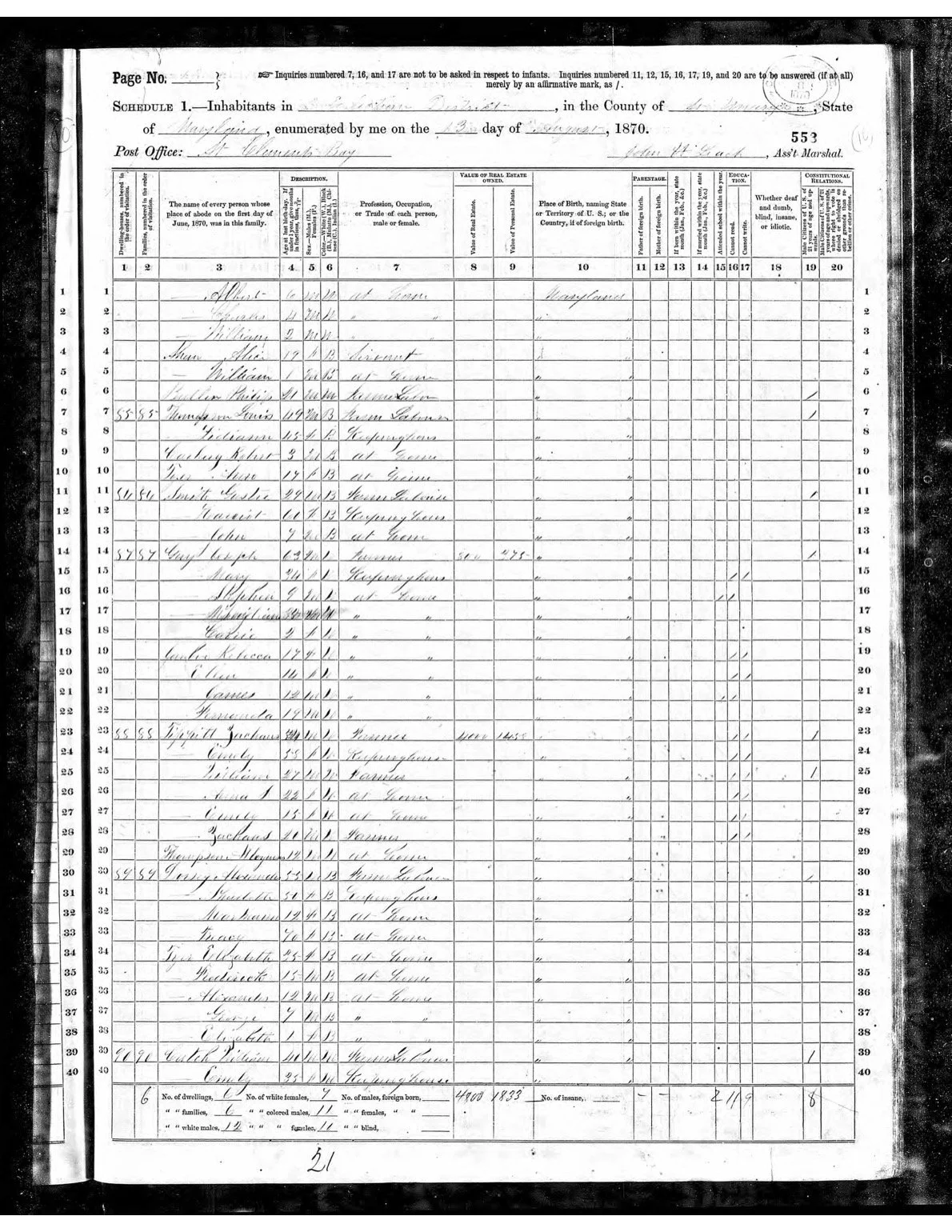Alexander Dorsey
[This is an edited excerpt of Dr. Jennie K. Williams's forthcoming book, Oceans of Kinfolk: the Coastwise Traffic of Enslaved Persons to New Orleans, 1820-1860. Please do not cite or circulate without permission.]
Arrested as a supposed fugitive from slavery in February of 1845, Alexander Dorsey insisted that he was free—that he had always been free, born and raised near Leonardstown in Saint Mary’s County. Most likely he was telling the truth: Baltimore city directories, which did not list enslaved individuals, include entries for an Alexander Dorsey, sawyer, for 1842 and 1845. He lived at 42 N. Sharp Street in Baltimore’s Inner Harbor neighborhood.
But Jacob Beckley was a Justice of the Peace, and Jacob Beckley didn’t believe Alexander Dorsey was free. He said Dorsey was a runaway slave, and he dragged him to jail.
Of course, the warden of the Baltimore City, Daniel Steever, took Beckley’s side. Steever posted an advertisement instructing Dorsey’s supposed enslaver to come claim his property. Otherwise, the warden advised, Dorsey would be “discharged according to the law,” meaning he would be sold. A month went by, but no one came forward to claim Dorsey. Then, on March 5, 1845, Dorsey was sold to the Baltimore slave trader Joseph S. Donovan. Two and a half weeks later, Donovan sent Dorsey to New Orleans aboard the barque Home.
-
An Alexander Dorsey appears on this page of Matchett’s Baltimore Directory for 1842. City directories did not typically list enslaved individuals. If, therefore, the Alexander Dorsey listed in Matchett’s Directory was the same individual who was later arrested as a supposed fugitive from slavery and trafficked to New Orleans, then his inclusion in the dirextory suggests Dorsey was indeed free prior to his arrest.
-
This is an advertisement posted by the warden of the Baltimore City Jail notifying the public (especially Dorsey’s enslavers, if they existed) of Dorsey’s arrest as a supposed fugitive from slavery.
One way Maryland's legal system, like those of other Southern states, restricted the freedoms of free African Americans was by making it difficult for Black individuals to prove their free status, increasing the chances of being apprehended and jailed as a suspected runaway slave.
What’s more, even if individuals were eventually able to prove their freedom, they were often still liable for jail fees or fines, and if they were unable to pay those expenses, they could be sold into servitude to work off these debts.
-
This is the manifest of the voyage that carried Alexander Dorsey from Baltimore, MD to New Orleans. You can read more about records like this one here.
-
This record documents Dorsey’s service in the United States Colored Troops during the Civil War.
-
This document is significant in at least two respects. First, in indicates that Dorsey returned home to Maryland after the Civil War. Also, note that Dorsey lists his hometown as Leonardstown, MD. This corresponds with what he told the warden back in 1845.
-
Alexander Dorsey in the US Census for Leonardtown, MD in 1870.

